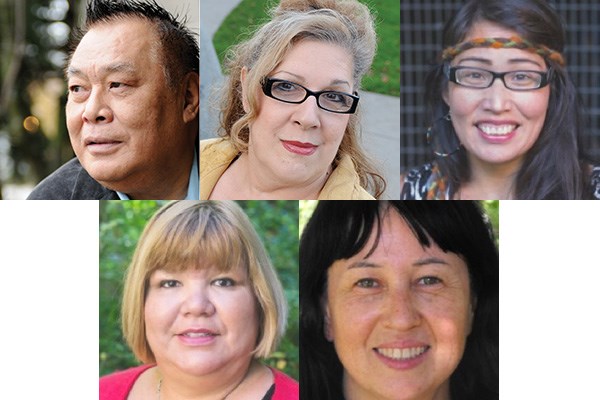Last week Brian Bowman, a Metis candidate in Winnipeg’s civic election, won the race for mayor. He became the first indigenous person to claim that seat in the city’s 140-year history. For aboriginal people across the country, this is a significant political moment.
In our own upcoming election, there are at least five candidates of aboriginal descent. Vision incumbent Ken Clement from the Ktunaxa First Nation in the Kootenays is on the ballot again for school board. Jamie Lee Hamilton, whose grandparents were from the Blackfeet Nation, is running for park board under the IDEA banner. COPE is running aboriginal candidates at school board, park board and council.
It isn’t easy for anyone to make the decision to run for public office, but the fraught history between the federal government and aboriginal communities makes it a uniquely complex decision for indigenous candidates. I asked Audrey Siegl, COPE’s city council candidate from the Musqueam Nation, how her family reacted when she announced her run for Vancouver council. “It’s been a mixed bag of reactions,” Siegl said.
Multiple generations of Siegl’s family were forced to attend residential school, a federally mandated program that, according to Reconciliation Canada, saw 150,000 children taken from their homes and subject to a mortality rate of between 40 to 60 per cent. This history was top of mind when Siegl told her family. “When I did the video release of my announcement that I’m running for city council, a lot of people were confused, a lot of people didn’t like it, and there were also a cross-section of people who supported me and said ‘good we need you in there.’”
Aside from the historical tensions, there are immediate reasons for aboriginal candidates to step lightly. In August, federal Liberals acclaimed B.C. Regional Chief Jody Wilson-Raybould of the We Wai Kai Nation as their candidate for the new Vancouver Granville riding. Nationally, some members of the Assembly of First Nations criticized Wilson-Raybould for tempting the wrath of the federal Conservative party, which holds the purse strings on funding to aboriginal communities.
But aboriginal candidates are stepping forward, with grace and generosity.
Diana Day, of the Oneida Nation, is seeking a spot on school board with COPE. Day graduated with an Honours B.A. in psychology and has worked for years as a leader in aboriginal health initiatives. I asked her by email what aspects of indigenous leadership she would bring to the school board. “As an indigenous woman I have been raised to care for the greater good of all children as a collective and not limited to the well-being of my own children. It is important for me to continue to see a collective community that is inclusive and looking out for the most vulnerable children and youth to ensure continuity of supports are in place throughout the school system.”
Both Siegl and Day agree that Vancouver has been missing out by not having more aboriginal voices at the municipal decision making table. Siegl noted that a city in hot pursuit of the title of Greenest City is missing out on the environmental knowledge of her people who have had a relationship with this land for generations. “Vancouver has been missing out, not only on a strong rich history of the land, but that strong rich history includes examples of how a matriarchal society thrived, and how they found success in so many different areas including trade and commerce, including managing the resources.”
Not only does the exclusion of aboriginal voices keep important knowledge out of reach for our municipal decision makers, it also hurts our aboriginal citizens. In the end, everyone loses out. “Because we are not at the table there is no level playing field,” Day said. “There is limited cultural sensitivity and cultural awareness among the members of the municipal government. As a result there is no cultural safety in the education system and generations of indigenous people have not been successfully graduating into careers and obtaining their rightful place in society as law makers, visionaries, and contributors to the municipal government.”
T’uy’tanat-Cease Wyss, COPE’s aboriginal candidate for park board, has extensive experience in urban agriculture, and helped establish a community kitchen and garden for her Squamish community on the North Shore — initiatives very similar to what the Vancouver park board prioritized in last year’s Local Food Action Plan.
With such thoughtful, qualified aboriginal candidates on the ballot, perhaps Vancouver can claim a different first. I’d be pretty proud if all five made it across the line.
trishkellyc@gmail.com
twitter.com/trishkellyc


